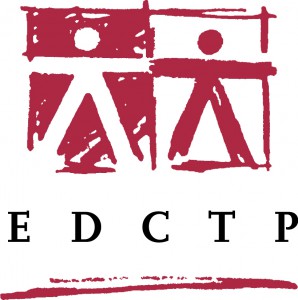I came across EDCTP when I started working on DSW’s EU based project on Research and Development (R&D) for poverty-neglected and neglected infectious diseases (PRNDs). I tried to guess for a second what this EU acronym would stand for, but I swiftly decided to look it up on the internet. I discovered an innovative EU initiative to improve the health of the world’s poorest and most vulnerable people.
EDCTP stands for European & Developing Countries Clinical Trials Partnership. This sometimes unpronounceable acronym describes a partnership between 16 European countries (among which 14 are Members of the European Union), and 48 sub-Saharan African countries. Through the integration of national research efforts and a joint research programming, EDCTP aims at building a common coherent strategy to fight PRNDs efficiently.
Established in 2003, its objective was to address the need for new medicinal products and health technologies to prevent, diagnose and treat HIV and AIDS, malaria and tuberculosis. EDCTP is now being extended, and its second phase is expected to start in May 2014. The scope of EDCTP will expand to also include neglected infectious diseases prevalent to sub-Saharan Africa (ie. excluding Chagas disease).
Why is this important? Because PRNDs, namely HIV and AIDS, malaria, tuberculosis, and 17 neglected tropical diseases listed by WHO here, affect more than one billion people across the globe, and more specifically the world’s poorest and vulnerable people. Adequate, affordable and quality health products to prevent, diagnose and treat neglected infectious diseases are however crucially lacking. The second EDCTP programme will therefore further facilitate transnational research in this field, and increase research capacities in sub-Saharan Africa. This second programme will enable EDCTP to continue and accelerate its activities that have proven to be an essential added value in advancing the fight against PRNDs through scientific excellence and scientific innovation.
Concretely, EDCTP 2 will support clinical trials on PRNDs to accelerate the development of new or improved drugs, vaccines, microbicides and diagnostics against these diseases. It will both coordinate national research programme for PRNDs, and invest in clinical trials. To do so, its budget is expected to be over one billion euros. The European Parliament is expected to vote on the proposed EU contribution (683 million euros) during the plenary in April 2014, and States participating to EDCTP will then match this contribution.
Any breakthrough in the development of global health technologies for PRNDs will change millions of people’s lives in low- and- middle income countries as well as in Europe. Even a partially effective malaria vaccine will significantly improve the health of pregnant women and children in particular. The current EDCTP programme has supported two major phase II clinical trials of candidate malaria vaccines, amongst others, and the hope is to see one of these candidates moving through the R&D pipeline.
EDCTP has also the potential to change people’s lives in Europe. As a matter of fact, any advance in preventing, diagnosing and treating HIV and AIDS and tuberculosis would also greatly benefit European citizens, in particular those living in the EU Member States most affected by these two diseases. The scientific expertise of these Member States would bring an added value in developing global health technologies that fit patients’ needs. That is why I, personally, hope to see more European Members States shouldering this EU initiative.
For more information on EDCTP 2, please see: www.edctp.org

